SAFETY MANAGEMENT & QUALITY ASSURANCE PROGRAMS
MORE THAN FOUR DECADES OF OPERATIONAL EXCELLENCE
SAFETY MANAGEMENT SYSTEMS (SMS)
Safety Management Systems (SMS) and Quality Management Systems (QMS) have long been used within industry to enable firms’ to produce safe products of very high quality, consistently and with high reliability. We must consistently deliver safe, high quality transportation services, every time, and on-time. We also understand that just having an SMS, while critically important to this end, is not enough alone to achieve operational excellence. And for certain, not every SMS is equivalent.
So how do we know that an SMS is effective? We engage, we measure, we identify deficiencies and we improve. These are bedrock components of an SMS and a Quality Assurance program. W. Edwards Deming once said, “If you can’t describe what you are doing as a process, you don’t know what you’re doing.” Deming also said, “It is not enough to do your best; you must know what to do, and then do your best.” This is why we integrate the best knowledge management tools of both SMS and QMS to improve our safety and quality performance at IJA.
SAFETY ASSURANCE:
At International Jet, our SMS program ascribes to the Safety Management System guidance as prescribed by the ICAO, and their Standards and Recommended Practices (SARPS). Our SMS program is modeled closely after the ICAO Safety Management Manual (SMM) DOC. 9859. Additionally, we ensure that the IJA SMS, as guided by the ICAO, also complies with the stringent requirements of the International Business Aviation Council (IBAC) standard, IS-BAO, of which we have been registered. While we also subscribe to other safety registrations by important domestic agencies, we believe in a unified “gold” standard that translates across all types of business aviation enterprises. This is the IS-BAO.
QUALITY MANAGEMENT SYSTEMS (QMS)
QUALITY ASSURANCE:
The IJA Quality Assurance Program is closely modeled after the quality frameworks of ISO, specifically the 9001 standard. We have integrated the IJA SMS and Quality Assurance programs at areas where they ‘touch’, and share responsibilities. These are our Internal Evaluation Program (IEP), Change Management (MOC), and Management Responsibility sections of the QMS. The IEP is primarily responsible for all quality auditing within the business, communicating operational shortcomings to managers and employees through the use of desktop and mobile technologies that can capture data in real-time, while in the field. We also use very sophisticated analytics tools (regression, hypothesis testing, non-parametric analysis) to help guide us in making informed and intelligent decisions about Safety and Quality.
MANAGEMENT REVIEW:
The results of ongoing analysis are shared between responsible parties and executive leadership. Issues are reviewed quarterly by the Safety and Quality Management Review Board (SQ-MRB) which consists of the CEO, President, Director of Safety and Quality Assurance, Director of Maintenance, Director of Operations, Chief Pilot(s), General Manager and the Manager of Ground Operations. Additionally, employees are openly invited to attend these meetings to voice concerns and suggest solutions to problems.
Both the Safety and Quality Assurance programs at IJA are executively managed by our Director of Safety and Quality Assurance. However, the day to day activities of these programs are executed by each workgroup manager and supervisor. This ensures that Safety and Quality becomes a shared responsibility among all in the organization. Finally, we measure our cultural organizational qualities every year to ensure that our safety and quality programs are meeting the expectations of our Executive Leadership team, employees and customers. .
PILOTS AND PILOT TRAINING
EXPERIENCE:
While our crews meet stringent industry standards for pilot experience and training, International Jet is unique given our diverse ranks of pilots that have come from many different professional aviation backgrounds to include the U.S. Military, Major Airlines, Cargo Operations, Corporate Flight Departments, Medical Flight Operations and Pilot Training Centers. While the total amount of flight time a pilot has logged is a useful measure of exposure to the challenges of the flight environment in general, scientific research has shown it is not the only predictor of flight skill. We measure the skills of our pilots using multiple indicators, based upon the best research. We are as sophisticated about pilot skill as we are about safety and quality metrics.
MENTORSHIP:
We believe this diversity engenders mentorship. We have considerable experience flying in some of the most challenging geographies on the continent such as the Rocky Mountains, which pose unique challenges to crews, especially to those operators unfamiliar with the environment around them. We believe very strongly in the power of pilot mentorship, especially in these cases—where the frequency of exposure and the sharing of prior experiences can make all of the difference.
SIMULATOR AND AIRCRAFT TRAINING:
Our pilots attend annual simulator training where they are exposed to scenarios that are not safely replicable during an actual flight. They practice “worst case” scenarios to build proficiency in handling the unexpected. Additionally, pilots are checked by our certified FAA Check Airmen once yearly in an actual airplane to demonstrate proficiency skills which are not as easily, or realistically replicated in a simulator. This is unique, and very expensive. But we believe the benefits of this training are unmistakable.
DECISION TOOLS:
We trust in our pilots to make the very best decisions, with safety as the absolute paramount concern above all others. Each flight is expressly risk assessed utilizing an objective SMS measurement tool called the FRAT. This tool helps pilots and supervisors make careful decisions about the hazards of a flight before it is commenced. We believe strongly that this tool aids in our ability to minimize unnecessary hazards to flight, and reinforces a methodical means to make choices in a controlled environment.
PROFESSIONAL COLLABORATION:
Pilots also attend monthly meetings as a group to stay abreast of new FAA regulations, operational particularities and company directives. This meeting also serves as an opportunity for pilots to exchange their experiences in the field, make collective suggestions on how we might improve services and improve safety. Our pilots are also expected to teach a technical training subject to the group on an annual basis. We believe there is no better way to understand what you do, than to teach it.
CUSTOMER SERVICE:
Finally, because our pilots serve as the ambassadors of our company when flying you safely to your destination, we encourage them to ensure that your service needs are met when at all possible. We empower our pilots to make customer service decisions that enhance your experience with us, without unnecessary delay or administrative hassle. As customers ourselves, we understand the importance of being able to solve logistical problems quickly and effectively, and why that is so important to business profitability. You choose International Jet pilots to transport you to your destination because you understand they can make a difference, right there, right now–with your safety as our number one concern.
IT ALL LEADS SOMEWHERE
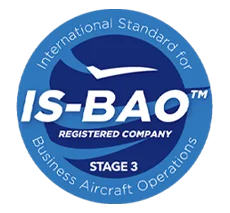
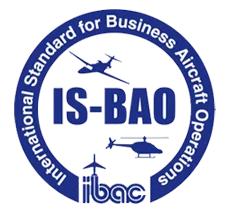
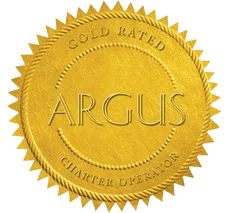
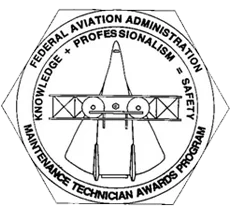
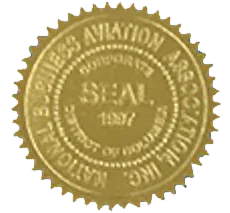
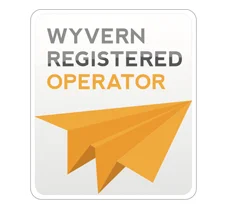


 303.790.0414
303.790.0414